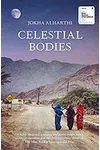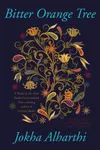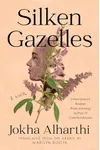Picture an Omani storyteller weaving tales that blend tradition with transformation—meet Jokha Alharthi! As the first Arab author to win the International Booker Prize, her novel Celestial Bodies introduced the world to Oman’s rich cultural tapestry. With her lyrical prose and focus on women’s lives, Alharthi has become a literary beacon, illuminating the evolving Arab world.
The Making of Jokha Alharthi
Born in 1978 in Oman, Jokha Alharthi grew up in a society balancing tradition and rapid modernization. Her passion for storytelling led her to study classical Arabic literature, culminating in a PhD from the University of Edinburgh in 2011. Returning to Oman, she became an associate professor at Sultan Qaboos University, where she teaches while raising three children. This blend of academic rigor and personal insight shapes her evocative narratives.
Jokha Alharthi’s Unforgettable Stories
Alharthi’s works are a window into Omani life, exploring themes of family, memory, and societal change. Her breakout novel, Celestial Bodies (2010, translated 2018), follows three sisters in the village of al-Awafi, navigating love, duty, and Oman’s shift from a slave-owning past to a modern state. Its nonlinear storytelling and poetic depth earned it the 2019 International Booker Prize, a historic win for Arabic literature.
Her follow-up, Bitter Orange Tree (2016, translated 2022), traces an Omani student’s reflections on her grandmother’s hardships, blending past and present with emotional resonance. Critics praised its lyrical style, with TIME naming it a must-read. Alharthi’s latest, Silken Gazelles (2021), delves into friendship and loss, showcasing her knack for intimate, universal stories. Her writing, often translated by Marilyn Booth, dances between realism and dreamlike prose, rooted in Omani culture yet globally relatable.
Why Jokha Alharthi Matters
Alharthi’s work transcends borders, offering a rare glimpse into Omani society while tackling universal themes like resilience and identity. As the first Omani woman novelist translated into English, she’s paved the way for Arab women writers, challenging stereotypes and enriching global literature. Her focus on women’s hidden strengths resonates deeply, making her a vital voice in contemporary fiction.
- Born: 1978, Oman
- Key Works: Celestial Bodies, Bitter Orange Tree, Silken Gazelles
- Awards: International Booker Prize (2019), Sultan Qaboos Award (2016)
- Fun Fact: She’s an associate professor and mother of three!
Ready to explore Oman through a master storyteller’s eyes? Snag Celestial Bodies and dive into Jokha Alharthi’s captivating world!



